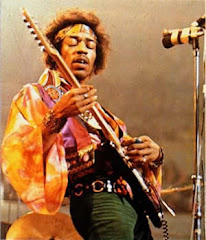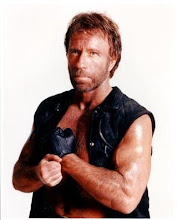America has a long and complicated military history, wrought with emotional trauma, human indecency, and morally questionable exploits. A nation forged by gunpowder and the flowing blood of patriots, the United States has been involved in just about every armed conflict in recent history. Naturally, for a country to have such sweeping influence on the course of human events, the casualty count is massive. Millions of citizens have fought and died in America’s many wars, and, often, the public objects to the carnage of battle. In Phil Ochs’ Vietnam War protest song, “I Ain’t Marching Anymore,” he uses a great deal of historical allusions, as well as a unique and effective point of view, to defend his argument.
The song is sung from the perspective of a single soldier, one who claims to have participated in every single military venture in the history of America. He states, “I marched to the battle of New Orleans, at the end of the early British war,” which is an allusion to the famous skirmish between British and American forces during the War of 1812. He claims that “The young land started growing,” a reference to the inexperienced and budding American nation. The narrator also says that he has killed his “share of Indians In a thousand different fights…at Little Big Horn.” This is a direct connection to the slaughter and near annihilation of the Native American Indian, as well as a possible allusion to the earliest American conflict, the French and Indian War. The speaker has fought “in the bloody Civil War” and “stole California from the Mexican land”: both of these statements refer to more military campaigns. The American Civil War, where men “killed [their] brothers,” is the former reference, and the latter alludes to the Mexican War, at the end of which America claimed California. The “battles of the German trench” is code for World War 1, also known as “the war to end all wars,” and the “mighty mushroom roar” in “the Japanese sky” references the dropping of the atomic bomb on Hiroshima and Nagasaki to end the Second World War. The final stanza alludes to the “Cuban shore” and the closing of “the missile plants,” which translates into the Cuban Missile Crisis, where the world was almost brought to nuclear war.
The soldier who claims to have fought in all of these wars is an unrealistic, yet effective, narrator. The conflicts date back as early as the 1700s and continue until the 1960s, making the speaker almost 300 years old. Ignoring the biological impossibility of the soldier’s age, his perspective produces an invaluable effect on the song as a whole. By personifying all of the country’s service men and women in this one, all-encompassing voice, Ochs is criticizing America’s inclination to use warfare as a resolution. This ‘eternal soldier’ is a perfect literary tool: it provides the listener with a historical background, a living lesson of our country’s past. This frame of reference is an ideal platform for the song’s antiwar agenda: by illustrating all of the nation’s major conflicts in such an uncompromising and negative light, Ochs is putting his fans in the right state of mind. By vilifying other military campaigns, he is indirectly criticizing the then-current war overseas. Without even saying the word Vietnam, Ochs manages to oppose the fighting with unmatched efficacy.
Phil Ochs is known as one of the Vietnam era’s greatest protest songwriters, and with good reason. With a simple characterization and a knowledge of American history, he is able to voice the frustration and pain of an entire generation. Ochs is able to make such a relevant connection between history and modern life, because the more things change, the more they stay the same.
Phil Ochs
I Ain't Marching Anymore
Oh I marched to the battle of New Orleans
At the end of the early British war
The young land started growing
The young blood started flowing
But I ain't marchin' anymore
For I've killed my share of Indians
In a thousand different fights
I was there at the Little Big Horn
I heard many men lying
I saw many more dying
But I ain't marchin' anymore
chorus)
It's always the old to lead us to the war
It's always the young to fall
Now look at all we've won with the saber and the gun
Tell me is it worth it all
For I stole California from the Mexican land
Fought in the bloody Civil War
Yes I even killed my brothers
And so many others
But I ain't marchin' anymore
For I marched to the battles of the German trench
In a war that was bound to end all wars
Oh I must have killed a million men
And now they want me back again
But I ain't marchin' anymore
(chorus)
For I flew the final mission in the Japanese sky
Set off the mighty mushroom roar
When I saw the cities burning I knew that I was learning
That I ain't marchin' anymore
Now the labor leader's screamin' when they close the missile plants,
United Fruit screams at the Cuban shore,
Call it "Peace" or call it "Treason,"
Call it "Love" or call it "Reason,"
But I ain't marchin' any more,
No I ain't marchin' any more
Subscribe to:
Post Comments (Atom)




No comments:
Post a Comment